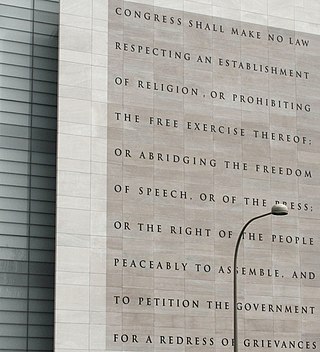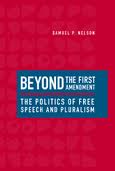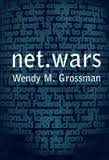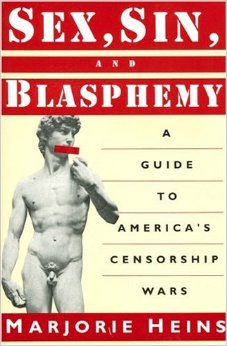Honorees
- 1986 Gloria Steinem [3]
- 1992 Rodney A. Smolla, Free Speech in an Open Society [2]
| William O. Douglas Prize | |
|---|---|
| Awarded for | Recognizes distinguished contribution by authors to freedom of speech |
| Sponsored by | Commission on Freedom of Expression of the Speech Communication Association |
| Country | United States |
The William O. Douglas Prize (also known as the William O. Douglas Award) is given by the Commission on Freedom of Expression of the Speech Communication Association to honor those who contribute to writing about freedom of speech. The Award is named after William O. Douglas, who served as an Associate Justice of the Supreme Court of the United States from 1939 to 1975.
The William O. Douglas Prize is given by the Commission on Freedom of Expression of the Speech Communication Association to authors. [1] The prize recognizes distinguished work in the field of writing about the subject of freedom of speech. [2]
Brandenburg v. Ohio, 395 U.S. 444 (1969), is a landmark decision of the United States Supreme Court interpreting the First Amendment to the U.S. Constitution. The Court held that the government cannot punish inflammatory speech unless that speech is "directed to inciting or producing imminent lawless action and is likely to incite or produce such action". Specifically, the Court struck down Ohio's criminal syndicalism statute, because that statute broadly prohibited the mere advocacy of violence. In the process, Whitney v. California (1927) was explicitly overruled, and Schenck v. United States (1919), Abrams v. United States (1919), Gitlow v. New York (1925), and Dennis v. United States (1951) were overturned.
Reno v. American Civil Liberties Union, 521 U.S. 844 (1997), was a landmark decision of the Supreme Court of the United States, unanimously ruling that anti-indecency provisions of the 1996 Communications Decency Act violated the First Amendment's guarantee of freedom of speech. This was the first major Supreme Court ruling on the regulation of materials distributed via the Internet.
New York Times Co. v. Sullivan, 376 U.S. 254 (1964), was a landmark U.S. Supreme Court decision ruling that the First Amendment to the U.S. Constitution's freedom of speech protections limit the ability of American public officials to sue for defamation. The decision held that if a plaintiff in a defamation lawsuit is a public official or candidate for public office, not only must they prove the normal elements of defamation—publication of a false defamatory statement to a third party—they must also prove that the statement was made with "actual malice", meaning the defendant either knew the statement was false or recklessly disregarded whether it might be false. New York Times Co. v. Sullivan is frequently ranked as one of the greatest Supreme Court decisions of the modern era.
Whitney v. California, 274 U.S. 357 (1927), was a United States Supreme Court decision upholding the conviction of an individual who had engaged in speech that raised a threat to society. Whitney was explicitly overruled by Brandenburg v. Ohio in 1969.
Cohen v. California, 403 U.S. 15 (1971), was a landmark decision of the US Supreme Court holding that the First Amendment prevented the conviction of Paul Robert Cohen for the crime of disturbing the peace by wearing a jacket displaying "Fuck the Draft" in the public corridors of a California courthouse.

In the United States, freedom of speech and expression is strongly protected from government restrictions by the First Amendment to the U.S. Constitution, many state constitutions, and state and federal laws. Freedom of speech, also called free speech, means the free and public expression of opinions without censorship, interference and restraint by the government. The term "freedom of speech" embedded in the First Amendment encompasses the decision what to say as well as what not to say. The Supreme Court of the United States has recognized several categories of speech that are given lesser or no protection by the First Amendment and has recognized that governments may enact reasonable time, place, or manner restrictions on speech. The First Amendment's constitutional right of free speech, which is applicable to state and local governments under the incorporation doctrine, prevents only government restrictions on speech, not restrictions imposed by private individuals or businesses unless they are acting on behalf of the government. However, It can be restricted by time, place and manner in limited circumstances. Some laws may restrict the ability of private businesses and individuals from restricting the speech of others, such as employment laws that restrict employers' ability to prevent employees from disclosing their salary to coworkers or attempting to organize a labor union.
Leonard Williams Levy was an American historian, the Andrew W. Mellon All-Claremont Professor of Humanities and chairman of the Graduate Faculty of History at Claremont Graduate School, California, who specialized in the history of basic American Constitutional freedoms. He was born in Toronto, Ontario, and educated at the University of Michigan as an undergraduate and at Columbia University, where his mentor for the Ph.D. degree was Henry Steele Commager.

Jack M. Balkin is an American legal scholar. He is the Knight Professor of Constitutional Law and the First Amendment at Yale Law School. Balkin is the founder and director of the Yale Information Society Project (ISP), a research center whose mission is "to study the implications of the Internet, telecommunications, and the new information technologies for law and society." He also directs the Knight Law and Media Program and the Abrams Institute for Free Expression at Yale Law School.
Rodney A. Smolla, is an American author, First Amendment scholar and lawyer. He is currently the president of the Vermont Law School, and former dean of the Widener University Delaware Law School until spring 2022. He was the 11th president of Furman University. In 2015, it was announced that on 1 July of that year, Smolla would become the dean of the newly separate Delaware Law School of Widener University.

Freedom of speech is a principle that supports the freedom of an individual or a community to articulate their opinions and ideas without fear of retaliation, censorship, or legal sanction. The right to freedom of expression has been recognised as a human right in the Universal Declaration of Human Rights and international human rights law by the United Nations. Many countries have constitutional law that protects free speech. Terms like free speech, freedom of speech, and freedom of expression are used interchangeably in political discourse. However, in a legal sense, the freedom of expression includes any activity of seeking, receiving, and imparting information or ideas, regardless of the medium used.

Cyber Rights: Defending Free Speech in the Digital Age is a non-fiction book about cyberlaw, written by free speech lawyer Mike Godwin. It was first published in 1998 by Times Books. It was republished in 2003 as a revised edition by The MIT Press. Godwin graduated from the University of Texas School of Law in 1990 and was the first staff counsel for the Electronic Frontier Foundation. Written with a first-person perspective, Cyber Rights offers a background in the legal issues and history pertaining to free speech on the Internet. It documents the author's experiences in defending free speech online, and puts forth the thesis that "the remedy for the abuse of free speech is more speech". Godwin emphasizes that decisions made about the expression of ideas on the Internet affect freedom of speech in other media as well, as granted by the First Amendment to the United States Constitution.

Free Speech, "The People's Darling Privilege": Struggles for Freedom of Expression in American History is a non-fiction book about the history of freedom of speech in the United States written by Michael Kent Curtis and published in 2000 by Duke University Press. The book discusses the evolution of free speech in the U.S. within the context of the actions of individuals and how they affected change. The author writes that protests and actions by citizens helped to evolve the notions surrounding free speech in the U.S. before definitive statements on the matter from U.S. courts. Curtis writes that free speech rights were first developed in "the forum of public opinion", and that, "The history of free speech shows the need for broadly protective free speech rules applied generally and equally".

Beyond the First Amendment: The Politics of Free Speech and Pluralism is a book about freedom of speech and the First Amendment to the United States Constitution, written by author Samuel Peter Nelson. It was published by Johns Hopkins University Press in 2005. In it, Nelson discusses how the more general notion of free speech differs from that specifically applied to the First Amendment in American law.

Freedom of Expression® is a book written by Kembrew McLeod about freedom of speech issues involving concepts of intellectual property. The book was first published in 2005 by Doubleday as Freedom of Expression®: Overzealous Copyright Bozos and Other Enemies of Creativity, and in 2007 by University of Minnesota Press as Freedom of Expression®: Resistance and Repression in the Age of Intellectual Property. The paperback edition includes a foreword by Lawrence Lessig. The author recounts a history of the use of counter-cultural artistry, illegal art, and the use of copyrighted works in art as a form of fair use and creative expression. The book encourages the reader to continue such uses in art and other forms of creative expression.

Net.wars is a non-fiction book by journalist Wendy M. Grossman about conflict and controversy among stakeholders on the Internet. It was published by NYU Press in 1997, and was simultaneously made available free as an online version. The book discusses conflicts which arose during the growth of the Internet from 1993 through 1997, labeled by Grossman as "boundary disputes". These disputes deal with issues including privacy, encryption, copyright, censorship, sex, and pornography. The author discusses history of organizations in their attempts to enforce their intellectual property on the Internet, against individuals who attempted to reveal confidential materials asserting it was in the public interest. Grossman frames these disputes with respect to overarching rights of freedom of speech and the First Amendment to the United States Constitution.

The Best American Magazine Writing 2007 is a non-fiction book published by Columbia University Press, and edited by the American Society of Magazine Editors. It features recognized high-quality journalism pieces from the previous year. The book includes an account by journalist William Langewiesche of Vanity Fair about a controversial United States military operation in Iraq, an investigative journalism article for Rolling Stone by Janet Reitman, a piece published in Esquire by C.J. Chivers about the Beslan school hostage crisis, and an article by Christopher Hitchens about survivors of Agent Orange.

Not in Front of the Children: "Indecency," Censorship, and the Innocence of Youth is a non-fiction book by attorney and civil libertarian, Marjorie Heins about freedom of speech and the relationship between censorship and the "think of the children" argument. The book presents a chronological history of censorship from Ancient Greece, Ancient Rome and the Middle Ages to the present. It discusses notable censored works, including Ulysses by James Joyce, Lady Chatterley's Lover by D. H. Lawrence and the seven dirty words monologue by comedian George Carlin. Heins discusses censorship aimed at youth in the United States through legislation including the Children's Internet Protection Act and the Communications Decency Act.

Sex, Sin, and Blasphemy: A Guide to America's Censorship Wars is a non-fiction book by lawyer and civil libertarian Marjorie Heins that is about freedom of speech and the censorship of works of art in the early 1990s by the U.S. government. The book was published in 1993 by The New Press. Heins provides an overview of the history of censorship, including the 1873 Comstock laws, and then moves on to more topical case studies of attempts at suppression of free expression.
Alexander Tsesis is an American constitutional scholar who holds the Raymond & Mary Simon Chair in Constitutional Law at Loyola University.